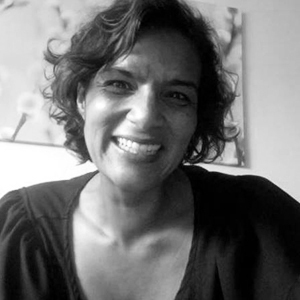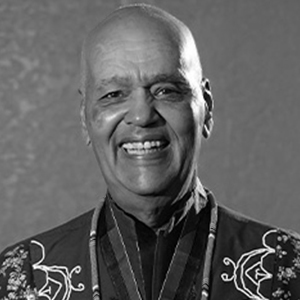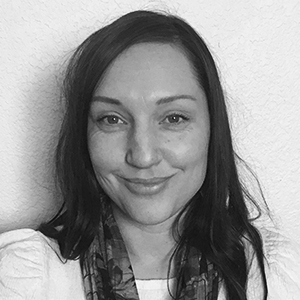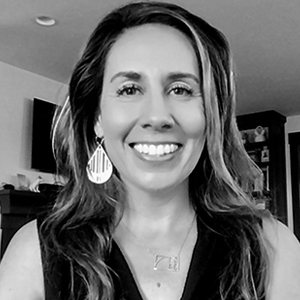Editors

Megan M. Hill
Megan M. Hill is the Senior Director of the Project on Indigenous Governance and Development and the Director of the Honoring Nations program at the Harvard Kennedy School. The core mission of the Project is to arm Indigenous people with the tools needed to (re)build their nations and govern effectively through research, teaching, leadership development, policy analysis, and pro bono advising for and with Native nations and communities. Its flagship program, founded in 1988, Honoring Nations, is a national awards program that identifies, celebrates, and shares outstanding examples of tribal governance.
Megan currently serves on the boards of the Native Governance Center and the Dr. Rosa Minoka Hill Fund. She is active within the Harvard community and is a member of the 266 NAGPRA Advisory Committee for the Peabody Museum. Previously, she worked as Director of Development at both the University of New Mexico and Arizona State University and as a Senior Program Officer for the Institute of American Indian Arts. Megan graduated from the University of Chicago with a Master of Arts Degree in the Social Sciences and earned a Bachelor of Arts in International Affairs and Economics from the University of Colorado, Boulder.

Norbert S. Hill Jr.
Norbert S. Hill Jr., Oneida, is the former Area Director of Education and training for the Oneida Nation of Wisconsin. Hill’s previous appointment was Vice President of the College of Menominee Nation for the Green Bay campus. Hill served as the executive director of the American Indian Graduate Center (AIGC) in New Mexico, a nonprofit organization providing funding for American Indians and Alaska Natives to pursue graduate and professional degrees. Previous positions include executive director of the American Indian Science and Engineering Society, assistant dean of students at the University of Wisconsin—Green bay, and director of the American Indian Winds of Change and The American Indian Graduate, magazine publications of AISES and AIGC respectively. Hill holds an honorary doctorate from both Clarkson University (1996) and Cumberland College (1994). Past board appointments include Environmental Defense Fund, chair and board member of the Smithsonian Museum of the American Indian, and the Wisconsin Historical Society. In 1989, Hill was awarded the Lifetime Achievement Award from the National Action Council for Minorities in Engineering.

Desirae L. Hill
Desirae Louise Hill (she/her) has spent over a decade as cofounder, managing creative director, and strategist at Three Track Mind—a design studio and consultancy supporting startups, small businesses, and nonprofits doing purposeful work related to the arts, culture, education, environment, food, and wellness. She is also cofounder of Storywell yoga farm. She earned a BA in Business Administration with concentration in marketing while also studying literature at Western Washington University. Desirae also earned a technical degree in Visual Communications: Graphic and Web Design, and is a candidate for a MSM and MBA at the University of Illinois—Urbana Champaign. She is a registered certified facilitator of yoga and is learning how to grow corn alongside her family and community in Oneida, Wisconsin, as a member of Ohe·láku (Among the Cornstalks).

Kathleen Ratteree
Dr. Kathleen Ratteree is the co-editor of The Great Vanishing Act: Blood Quantum and The Future of Native Nations (Fulcrum 2017). She previously worked with the Oneida Nation Trust and Enrollment Committee, serving as project manager for Sustain Oneida, a group that facilitates constructive community dialogue on tribal enrollment criteria. She collaborated with Trust and Enrollment to create a community discussion series about identity, citizenship, blood quantum, demographics, sovereignty, and tribal governance. She also wrote a related article series for the Kalihwisaks. Kathleen defended her dissertation in First Nations Education at the University of Wisconsin—Green Bay. She holds a MA in Medical Anthropology, a Master of Public Health, and a certificate of Global Health from the University of Wisconsin—Madison. Kathleen currently teaches at the Fallen Timbers Environmental Education Center in Black Creek, Wisconsin. She lives on a 40-acre farmstead with her husband, two young children, a 100-pound dog, ten chickens, three goats, two sheep, and various wildlife.
Publisher
The Great Vanishing Act: Blood Quantum and the Future of Native Nations, edited by Kathleen Ratteree and Norbert S. Hill Jr., Fulcrum Publishing, 2017.
Beyond Blood Quantum: Refusal to Disappear edited by Megan Minoka Hill, Norbert S. Hill Jr., and Desirae Louise Hill, Fulcrum Publishing, forthcoming 2025.

